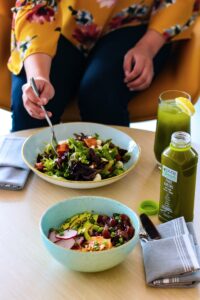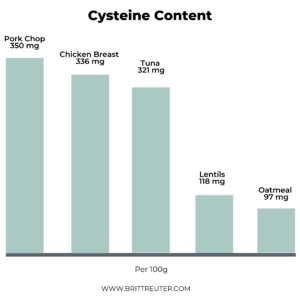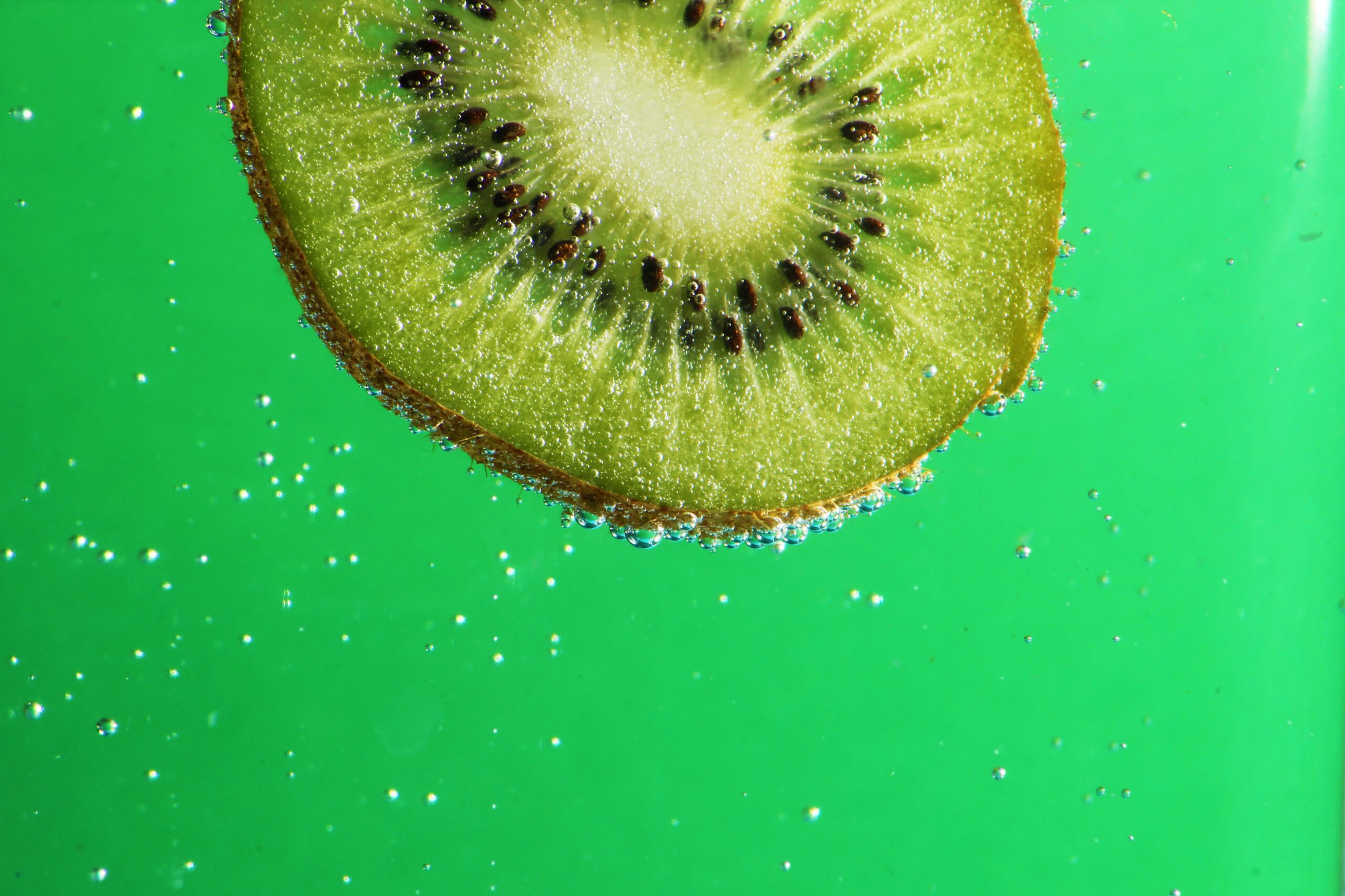Plant-Based Diets and Hair Health
Plant-based diets are really popular right now. A lot of people are interested in trying a diet that they’ve heard is better for their health, better for the planet, and reduces animal cruelty.
And to be fair, one diet that claims to accomplish all of that does seem really alluring.
But, does following a plant-based diet make sense for someone experiencing hair loss? What are some of the health watch-outs that we should be mindful of if we want to eliminate animal-based foods from our diet?
What does ‘plant-based’ mean?
The term ‘plant-based’ hasn’t been used widely for very long but is now being used broadly to mean many different things.
Some companies may use ‘plant-based’ to describe their products that include plant-derived ingredients. But you’ll also hear people use ‘plant-based’ to talk about how they eat. Depending on the person, plant-based might be referring to any of these different diets:
- Vegan: relies exclusively on plant-derived foods and excludes all animal-derived foods such as meat, eggs, dairy, and honey.
- Vegetarian: allows certain animal-derived foods such as honey, milk, eggs, or fish but usually restricts land animal proteins (e.g., chicken, pork, beef).
- Plant-forward: emphasizes plant-based foods but doesn’t forbid animal-derived foods.
Why would someone follow a plant-based diet?
There are a lot of reasons someone might follow one of the above plant-based diets. For example, some people choose to follow a vegan diet for religious reasons or due to animal welfare concerns.
For others, they may have heard that a plant-based diet is healthy and they want to try and improve their health.
Do you need to be plant-based in order to be healthy?
Diet dogma changes rapidly and is highly commercialized. Make no mistake, convincing people to try the latest fad-diet is big business (the diet industry is projected to reach a value of $295.3 billion by 2027).
To help us navigate the diet-industry’s commercial landscape (including the recent plant-based trend) I think it’s important to define for ourselves what ‘healthy eating’ means.
Here’s how we define healthy eating at my clinic:
- It promotes your health (both in terms of your physical health, mental health, etc.)
- It is sustainable for you
- It reflects what’s enjoyable for you
Ready for one-on-one support from a Certified Nutrition Specialist who can help you define what healthy eating looks like for you? Schedule a virtual Introduction Consult with my team today!

A lot of proponents of plant-based diets are eager to talk about the perceived health benefits of consuming more plant-foods in our diet. Advocates of eating more vegetables, fruits, whole grains, legumes, nuts and seeds are right to say that the nutrients contained in these foods are very beneficial to our health.
However, people do not need to follow a plant-based diet in order to be healthy. In fact, for some people it can compromise their health (and the health of their hair) to follow diets like this that are so restrictive.
Could following a plant-based be harmful to our health?
Remember how we defined healthy eating in the last section? In addition to those three criteria, I need to add one more thing:
The number one priority of healthy eating is that you are eating enough.
Any diet that labels lots of foods as “off-limits” is going to make it harder for us to provide our body with the nutrition that it needs in terms of calories, macronutrients (carbohydrates, proteins, fats), and micronutrients (vitamins, minerals, etc.).
Certain iterations of plant-based diets such as the vegan diet severely restrict the foods that we are ‘allowed’ to eat and can pose an obstacle in the way of getting adequate nourishment.
To be clear, there are lots of other reasons besides following a plant-based diet that someone may not be eating enough; for example, following another limited or restrictive diet, low appetite, chronic dieting, or food scarcity.
Just because someone is following a plant-based diet does not automatically mean that they are not getting adequate nutrition. It does however mean that meeting their nutrition needs will be significantly harder and they may require nutritional supplements in order to try and sustain their health.
How could a plant-based diet be harmful to our hair health?
Good nutrition is essential for healthy hair! If we are not meeting our basic dietary needs and our body experiences scarcity it can severely undermine our hair health.
Like I said, restrictive diets like plant-based can make it challenging to meet our nutritional needs and potentially compromise our hair health.

Here are some of the top nutritional watch-outs for those following a plant-based diet:
- Make sure you are getting adequate nourishment
Under-eating limits the amount of hair-essential macronutrients and micronutrients our body has available to grow and maintain healthy hair.
Eating too little can also trigger our body’s stress response which can lead to changes in our hormones (for example, cortisol, sex-hormones, and thyroid) which can alter our hair’s normal growth cycle.
- Remember that protein is essential for hair health
Eating protein is critical when it comes to growing and maintaining thick, beautiful, healthy hair. One of the most obvious ways that we can see this is true is that our hair actually made of protein!
Each strand of hair is made of a protein called keratin and the amino acid l-cysteine is a major component of keratin. Foods that are high in l-cysteine include meats like pork, beef, chicken and tuna as well as eggs and dairy and it can also be found in some plant-foods like lentils, oatmeal, and sunflower seeds.

The protein content of animal-derived versus plant-based protein sources are very different. To help illustrate this, look at the bar graph below showing the l-cysteine content of different foods. Consuming animal-derived proteins makes it easier to get optimal amounts of hair-essential proteins like l-cysteine.
- Plant-based diets are lacking in some hair-essential nutrients like iron and vitamin B12
Some nutrients work best with our bodies when they come from animal-derived sources. This is especially true when we look at iron.
Iron is an essential nutrient and is very important for healthy hair. Although both animal and plant-foods contain iron they don’t come in the same forms. Animal products like meat contain a more active and bioavailable form of iron called heme iron, while plants like spinach contain a less available form called non-heme iron. This explains why people who follow those diets may be nearly twice as likely to develop iron deficiency.
While some nutrients are better for our bodies when they come from animal-derived sources, other nutrients can virtually only be found in animal-based foods like meat. For example, vitamin B12 is not found in plant-based diets that exclude animal products and an estimated 78% of vegans are deficient in vitamin B12.
Vitamin B12 is an essential nutrient that supports hair health by supporting cellular energy.
While supplementing with B12 is an option (a necessary one if you are not consuming foods containing this vitamin) many people are not comfortable relying completely on a nutritional supplement to meet their nutrient needs.
- Anti-nutrients found in plant-based diets can block hair-essential nutrients
Plant-based diets are typically high in an anti-nutrient called phytate (also called phytic acid). Phytate is found in many plant foods especially grains and beans and it has the ability to block the absorption of hair nourishing nutrients like iron and zinc. In fact, the bioavailability of zinc can be reduced by as much as 50% if someone consumes high amounts of phytates (and zinc can also be harder to obtain in some plant-based diets to begin with).
Avoiding phytates altogether isn’t typically necessary (especially since foods high in phytates likely have other health benefits we can enjoy). However, phytates can become a concern if we are eating too much of them as they can exasperate nutrient deficiencies.
- Plant-based diets can be hard on gut health
Although the two may seem unrelated, if we want healthy hair it needs to start with a healthy gut.
Not only is the gut where we digest and absorb hair-critical nutrients, but it also plays a huge role in detoxification (very important for healthy hormone levels) as well as maintaining inflammation and immune balance.
Gut healing nutrients like protein and zinc can be harder to come by on a plant-based diet. This can leave our gut deplete of the raw materials it needs to function optimally.
Also, plant-based diets can be tough on some people’s guts because of their heavier reliance on grains and legumes. This can potentially exasperate underlying gut issues and worsen digestive health.
Another way plant-based diets may be hard on gut health is when it relies too heavily on packaged, processed foods. Packaged plant-based foods are often high in inflammatory seed oils like soybean, corn, cottonseed, safflower, or sunflower oil. There are many potential health consequences related to over consuming these sorts of oils including increased gut inflammation.



